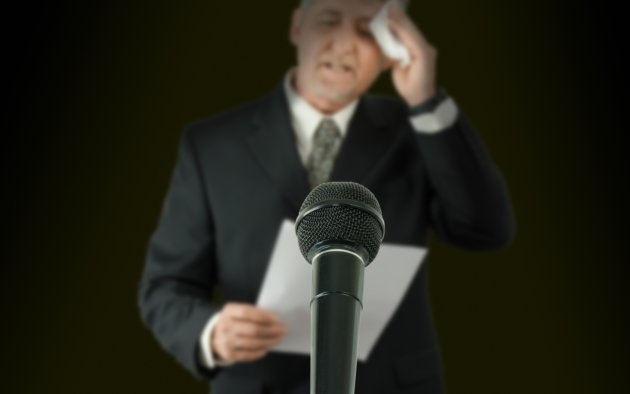
Credit: iStock.com/mokee81
How do you manage stress?
Imagine one day you’re walking down the street and you see flames roaring from your neighbor’s home. You start sweating, and fumble for your phone to call the fire department. Then, you just stand there in nervous awe until the professionals arrive.
Being overcome by stress can cause you to freeze up. But professionals with training can jump into a burning building at a moment’s notice. And be as cool and collected as I am when I’m on the beach with a drink in my hand. They’ve been there before, so they know what to expect and can manage the stress with success. And, so can you.
Now, you might not want to be tasked with running into a burning building, but your life is full of stress. Everyone’s is.
If you’ve got a family, job, health condition, or payments to make, you’ve got stress. And, how you think and deal with stress is the difference between it hampering or helping your health.
Perception Is Reality
Perception and practice may be the key to becoming better at stress, and it’s backed up by science.
A large-scale study conducted in 2012 showed that there was virtually no link between the amount of stress in a person’s life and premature death. But, people who reported that they believed stress was taking a toll on their health were 43% more likely to die prematurely. So, perception plays a major role.
There are two ways people view stress: It’s either a hamper or a helper.
People who view stress a hamper believe that it’s wreaking havoc on their bodies. Meanwhile, those who think it’s a helper see it as a source of strength and energy to help them overcome adversity.
A study published in the Journal of Experimental Psychology General showed that having a more positive view of stress provided great strength to people during stressful times.
How to Manage Stress Effectively
1. Think Differently
When you’re feeling stressed out, try not think about how you may be feeling anxious. Or, that your heart’s beating faster and it could lead to a heart attack. Instead, look at it as your body revving itself up for a challenge, and that a long, deep breath will circulate more oxygen.
2. Practice Makes Perfect
Practice can also help you get better at handling stress. And by exposing yourself to small stressors regularly, you can be more prepared when the big ones hit—almost like stress inoculation therapy.
So, if you’re anticipating an incredibly stressful situation, educate yourself by talking to people who’ve gone through it. Divorce, major illnesses, or setbacks at work are quite common in general, so getting some insight on what you can expect can help you from being blindsided.
3. Rehearse Tough Situations
Next, you can rehearse stressful moments by putting yourself in difficult situations. Now, you may not be able to fully prepare yourself for a major event, but participating in activities or events outside of your comfort zone that force you to adapt to stress can be a big help. These can include public speaking, weightlifting, karaoke, learning to scuba dive, taking on a challenging project at work, and so on.
Don’t Stress, Just Practice
Hopefully, practicing stress will prepare you to handle more stressful events better when they arrive. It also makes little daily stressors easier to overcome, so you don’t get bogged down.
Research has shown that repeated exposure to stressful events can change your body’s biological response so that they become easier to handle.
So, perhaps firefighters aren’t less stressed or even braver than you—they’re just well-practiced!
Sources:
Keller, A., et al., “Does the perception that stress affects health matter? The association with health and mortality,” Health Psychology, September 2012; 31(5): 677-684. DOI: 10.1037/a0026743.
Jamieson, J.P., et al., “Mind over Matter: Reappraising Arousal Improves Cardiovascular and Cognitive Responses to Stress,” Journal of Experimental Psychology: General, August 2012; 141(3):417-422. DOI: 10.1037/a0025719.
Schneiderman, N., et al., “STRESS AND HEALTH: Psychological, Behavioral, and Biological Determinants,” Annual Review of Clinical Psychology. 2005; 1: 607-628. DOI:10.1146/annurev.clinpsy.1.102803.144141.
Parker-Pope, T., “How to Be Better at Stress,” The New York Times, 2017; https://www.nytimes.com/guides/well/how-to-deal-with-stress, last accessed August 22, 2017.
